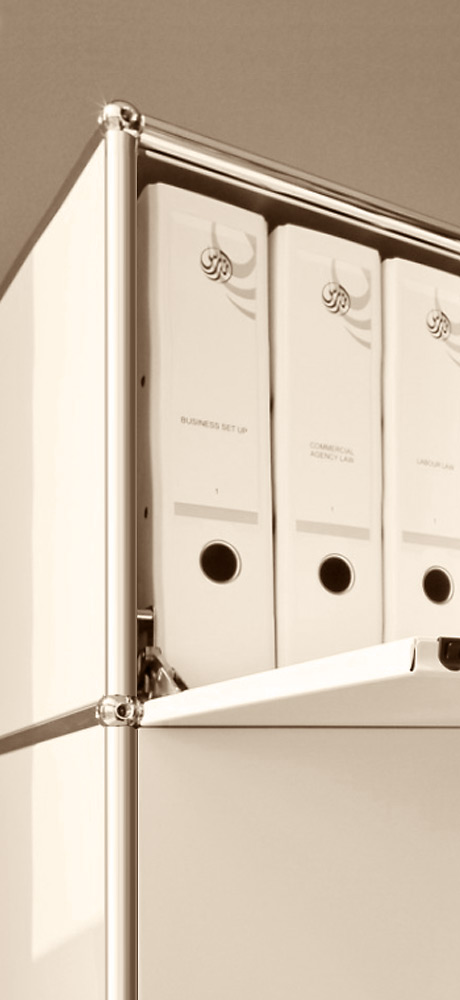The Emirate of Dubai has issued various new laws and regulations and restructured the formal procedure for the transfer of properties located in Dubai. Thus, it has created a more transparent and, especially for buyers, safer environment for real estate transactions.
The Dubai Land Department ("DLD") continues to be the competent regulatory authority. For a while now, however, so-called Registration Trustee Offices, which are associated with the DLD, are responsible to process the actual real estate purchase.
Although the DLD has issued standardized contracts that are to be used mandatorily when transferring a property, both buyer and seller are responsible by themselves to gather all other required documentation in a complete and proper manner. Hence, a thorough preparation by the contracting parties still remains essential in order to guarantee a successful execution of a real estate sale and purchase.
Phase 1: Drafting the Contractual Documents
Once buyer and seller have agreed on the key parameters of the real estate transaction, the contract of sale has to be drafted and duly signed. The DLD stipulates that all parties have to use the standardized contract issued by the authority ("Form F"). As Form F, however, governs the property transfer only rudimentarily, the parties are well advised to conclude a detailed, additional contract, a so-called Sale and Purchase Agreement ("SPA").
The SPA should especially contain provisions on the time frame during which the property transaction should be finalized, the grounds for payment and forfeiture of security deposits as well as all amounts to be settled by the respective parties. Furthermore, the SPA may include rights and obligations of the involved real estate brokers which otherwise are only covered by the standard templates created by the DLD ("Form A" and "Form B").
Phase 2: Compiling all Required Documents
It largely depends on the identity of the parties and the characteristics of the property in question which exact documents have to be provided by both seller and buyer during the appointment for the property transfer at the Registration Trustee Office.
Transfers of unencumbered properties between individuals mostly prove to be uncomplicated as - comparatively - few documents need to be prepared. By contrast, should one or more corporate bodies be involved in a transaction, the DLD demands the submission of a variety of papers which - depending on the specific company structure, place of business and language the legal documents of the company were executed in - can often be compiled only when spending a considerable amount of time and money.
When properties are purchased off-plan, were mortgaged by the seller or are to be financed by the buyer, additional documents must be presented.
The parties usually neglect to consider the age of the relevant documents. The DLD imposes strict requirements on the issue dates and the maximum validity of specific documentation and - should these deadlines not be observed - declines to execute the real estate transfer.
Especially in cases when a property is owned by foreign entities, uncertainty - even at the Registration Trustee Offices themselves - prevails with regard to which particular paperwork has to be produced. Here, the coordination with the DLD and the chosen Registration Trustee Office is advisable at an early stage.
Phase 3: Content Review by DLD
The submission of the required documentation alone does not guarantee that a property is transferred successfully since the Registration Trustee Office not only verifies the completeness, authenticity and form of all documents but also their content. The Registration Trustee Office especially examines whether the persons appearing in front of it are entitled to perform all relevant actions in connection with the property transfer. Should such facts not arise from the presented documents without a doubt, the DLD declines to further process the transaction.
The same holds true for all amounts payable by the parties through manager's cheques. The Registration Trustee Office examines in detail whether the purchase price is being paid in full to the current owner of the property as indicated on the certificate of title ("Title Deed"). Should the cheque receiver and the seller not be identical, the transaction will not go through.
Phase 4: Issuance of New Title Deed & Handover of Purchase Price
Provided that the Registration Trustee Office deems the submitted documents to be complete and substantially adequate, it electronically forwards all papers for a final examination to the DLD. After the DLD itself has sanctioned the execution of the real estate transaction, the buyer receives - concurrently to the surrender of the purchase price to the seller - the new Title Deed in his name.
Generally, one appointment with all parties at the Registration Trustee Office is sufficient to successfully sign over a property and receive the new Title Deed on the same day provided that such an appointment had been planned foresightedly.
Summary
Is a contract of sale worded insufficiently or are the required documents only available incompletely or bad in form, the real estate transfer might - depending on the wording of the signed SPA - only be delayed in the best case or, in a worst case scenario, might entail the forfeiture of duly paid security deposits, needlessly spent broker fees and the loss of the chosen object of purchase.
Hence, you should remember two rules: First, carefully consider a purchase of property and second, preparation is key!

